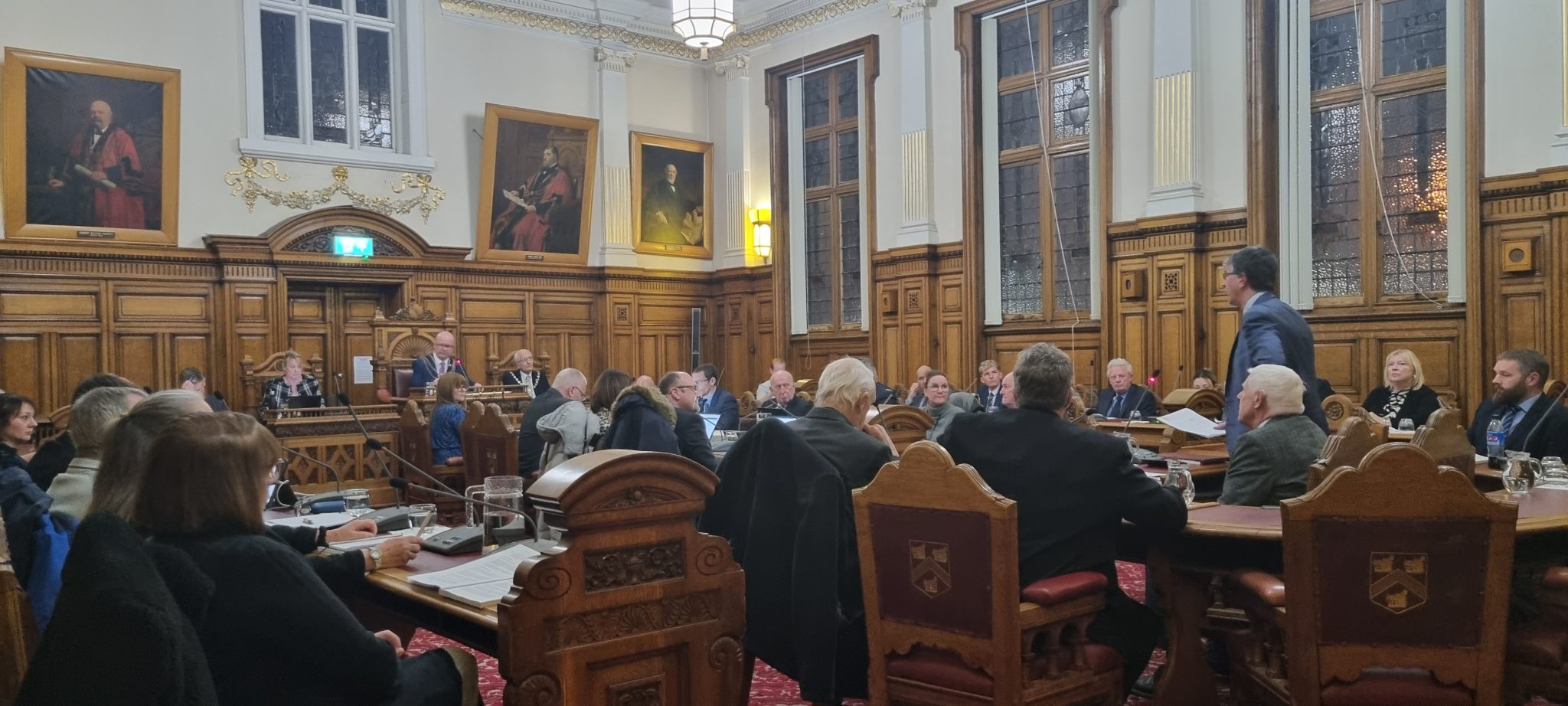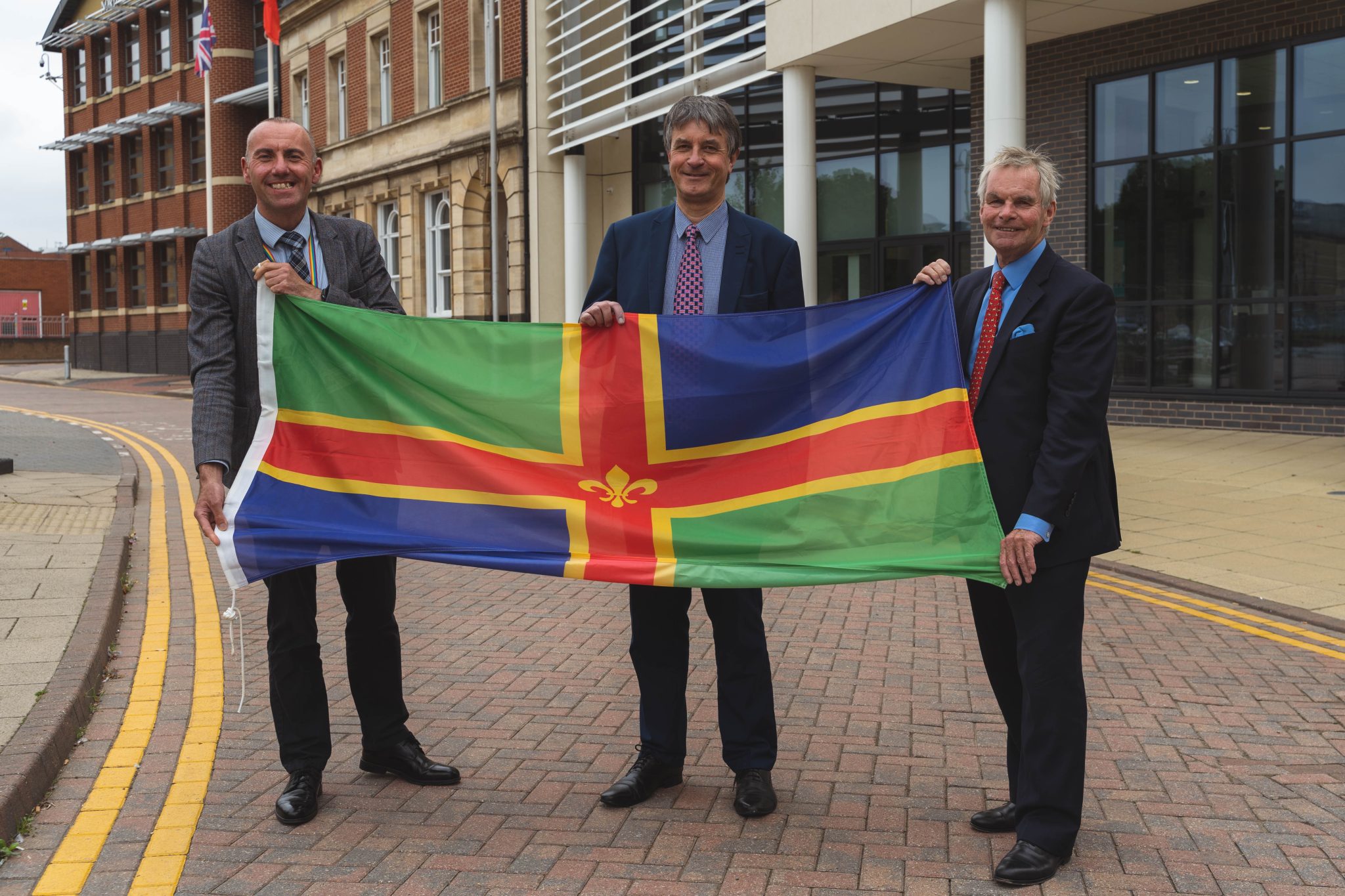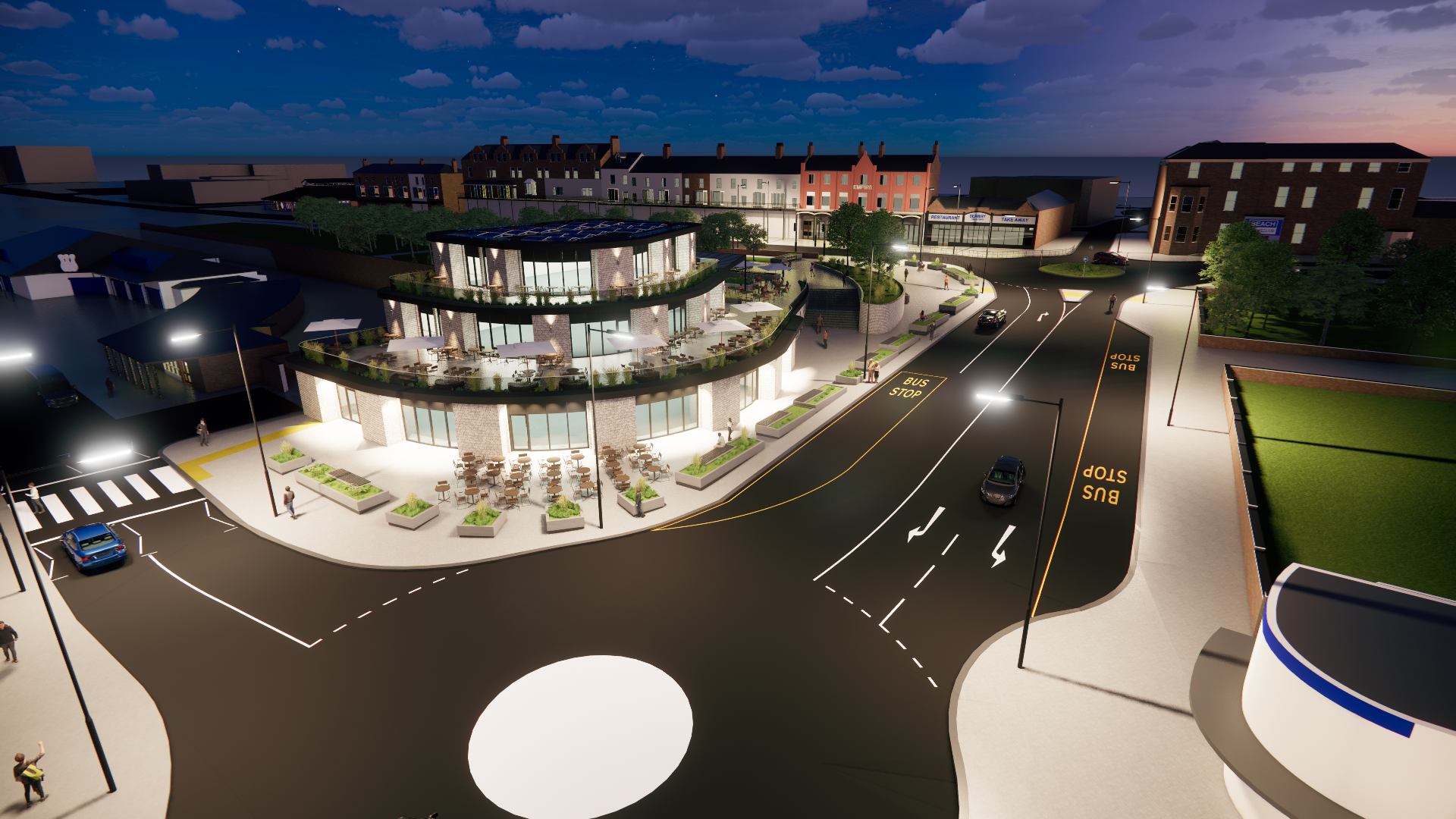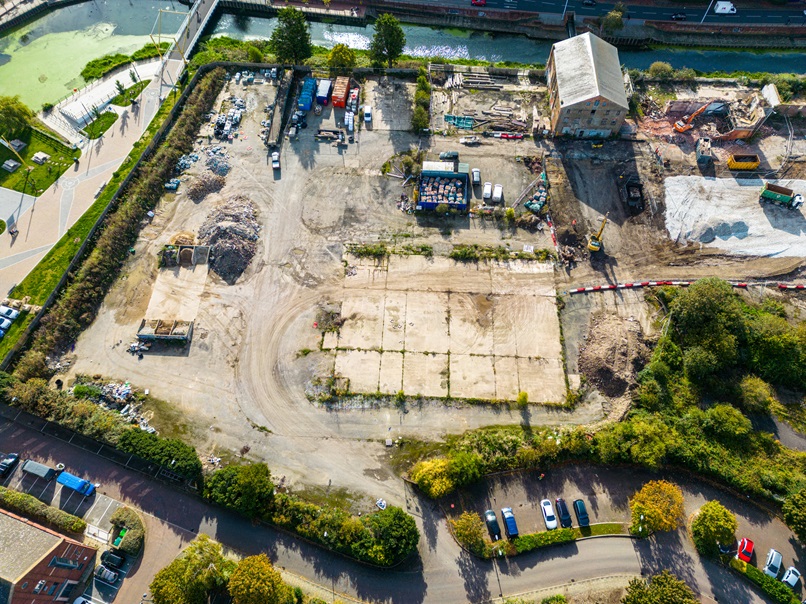DEVOLUTION for Greater Lincolnshire took a major step forward today (Wednesday 22 November), as central Government announced the agreement of a proposed deal.
The next stage will now be taken towards this historic deal, which if implemented will see millions of pounds of funding flow down from Government to a new Mayoral Combined County Authority, (MCCA) to support Greater Lincolnshire’s 1.1-million residents for the next 30 years.
Council leaders from Lincolnshire County Council and the two unitary authorities of North East Lincolnshire and North Lincolnshire, who have led the deal process, united in welcoming the announcement. They highlighted how devolved powers would see local decisions made at a local level with new opportunities, more investment and greater growth in key areas.
This, they add, would benefit all areas of Greater Lincolnshire with all corners of the county having a say in what is needed and how money is best spent.
North East Lincolnshire Council Leader, Cllr Philip Jackson joined his fellow Leaders , Cllr Martin Hill OBE (Lincolnshire County Council Leader) and Cllr Rob Waltham MBE (North Lincolnshire Council Leader), in warming welcoming today’s announcement:
He said “Together, we share a united vision to help create the very best opportunities for our respective council areas, and for Greater Lincolnshire as a whole. There is no doubt that this proposed devolution deal is set to provide that.
“This day is of huge significance. It represents a future of collaboration, bringing with it local and direct control of the things that really matter to the 1.1-million residents of Greater Lincolnshire who this proposed new deal is for. We are delighted and now wish to take everyone on a journey which we believe is the right one for us all.”
The Rt Hon Michael Gove MP, Secretary of State for Levelling Up, Housing and Communities, said: “This historic devolution agreement between Government and Greater Lincolnshire marks a step change for Levelling Up in the region. For a long time, I have believed that Greater Lincolnshire should have the powers and devolved budgets that other areas in England have been benefitting from and I am thrilled to be able to bring that about in Lincolnshire, North Lincolnshire and North East Lincolnshire.
“Greater Lincolnshire has a rich history and a unique place in the future success of our nation, from its world-leading offshore wind energy sector in the north to its agricultural heartland in the south. By taking decisions out of Whitehall and putting them back in the hands of local communities, this deal will enable Greater Lincolnshire to unleash its full economic potential.”
This initial proposed deal, which will be built on as time goes on, promises an additional three-quarters of a billion pounds of investment fund money over the next 30 years, £24m a year, for a Greater Lincolnshire MCCA to invest in its priority areas. These include jobs and skills; infrastructure (for example, housing and highways); transport, the environment and nature; net zero; digital improvements; and innovation and trade.
Following a formal ceremony next week, Full Council meetings will take place in the three lead authority areas to vote on the proposal, and that it should go out to public consultation. North East Lincolnshire’s meeting will take place on Thursday 30 November at 7pm.
If the three councils’ votes are favourable, residents will have their say during an eight-week consultation period due to start in early December – it is only after that, that the final decision will be made both locally and at Government level.
If it moves to this stage, the MCCA would exist from May 2025 when residents would vote for their new Greater Lincolnshire Mayor and the combined authority would be established. Existing councils will continue to run as they do now with representatives from them all forming the new MCCA board, along with representation from the seven district/borough councils across Lincolnshire, business and the Police and Crime Commissioner, (PCC).
Devolution questions and answers
What is devolution and what will it mean for Greater Lincolnshire?
Devolution is a way in which central Government can transfer agreed powers and funding to regions across the country. This allows people who know their areas best to decide where money is spent. Examples where this is already happening include Greater Manchester, the West Midlands, the Tees Valley and more recently, York and North Yorkshire. Devolution involves the creation of combined authorities – legal bodies that bring two or more councils together to decide on agreed issues that cross boundaries.
Does this mean a merger of the three upper tier authorities (Lincolnshire County Council and North Lincolnshire and North East Lincolnshire Councils) and the seven district and borough councils (East and West Lindsey, North and South Kesteven, Boston Borough Council, City of Lincoln Council and South Holland District Council)? No councils will not merge nor is devolution another tier of local government. The authorities will continue to exist as they are – providing the services they do now.
So, what is different and how would this improve things in Greater Lincolnshire? A Greater Lincolnshire Mayoral Combined County Authority, (MCCA) would grow over time. For example, a deal in the first year would see money and control handed down in some agreed areas such as transport, improving skills and training, housing, economic growth, and the environment. That will expand as the deal matures with more control of finances and power agreed with Government.
How does a combined authority work? A combined authority would have a board made up of representatives from councils, along with representatives from, for example, business organisations and the Police and Crime Commissioner, ensuring fair allocation of funding. This is more efficient. If you take our highway network as an example. Roads like the A16 and A15 are vital for the movement of goods, and visitor and commuter traffic across Greater Lincolnshire. Devolved powers could see our 10 councils more able to work together on long-term plans for the improvement of all highways projects to benefit all.
What does an elected mayor have to do with all of this? A MCCA is a Level 3 devolution. It is the very best way to ensure greater control over future local decisions – which includes securing funding for cross cutting areas like infrastructure and economic growth directly from Government. Level 3 comes with an elected mayor who is a regional leader directly elected by the people. An elected mayor is not a replacement for the civic mayors or chairs, which are ceremonial roles.
Will all this extra bureaucracy mean less money for services? It will bring more money and powers to Greater Lincolnshire. There is little to be gained from not seeking devolved powers. Indeed, this highly important economic area of Eastern England would risk stagnating. Those around us, such as Hull and the East Riding, and the East Midlands (the latter with a deal already agreed with the Government) would have forged ahead and be taking advantage of the benefits devolution brings. It is important to note that North and North East Lincolnshire will also take advantage of their geographically positions on the south Humber estuary to ensure relationships grow between the Humber Estuary and its businesses, and Greater Lincolnshire.
Why do we have to have a Mayor and won’t that be expensive? A Mayor would chair a board of 6 other constituent (voting) members and other non-constituent members, so would not make all the decisions in isolation. Our proposal is for the maximum amount of funding available to us, and the government require us to have a Mayor – directly elected by our residents – to achieve this. This means the arrangements would be robust and accountable to the public.
A Mayor would also be a champion for Greater Lincolnshire at regional and national levels, ensuring that our voice, and our needs are heard. All three councils have expressed a desire to have a small and tightly controlled Mayoral Office to manage the millions of pounds of extra funding we would receive. A Mayor could only impose a council tax precept if agreement is reached with the constituent members.
Could deals be scrapped if the Government changes? Setting up a combined authority requires legislation to be passed. Part of any deal would commit the Government legally to longer-term funding provision, including a 30-year investment funding allocation. Both leading parties have also committed to the principle of devolution.
What happens now? Following this week’s Government announcement, there will be Full Council meetings in North East Lincolnshire, North Lincolnshire and Lincolnshire to vote on whether to accept the proposed deal. If that is favourable, consultation with the 1.1-million residents of the greater county will start straight away (early December). This consultation is an opportunity for everyone in the area to have their say about devolution proposal. It is open to residents, businesses, community and voluntary groups, and other organisations in the region.
Where can I find out more? The proposed deal can be found on the Gov.uk website – Greater Lincolnshire devolution deal 2023 – GOV.UK (www.gov.uk)- external site
Article and image from NELC.








